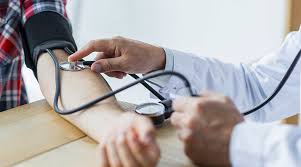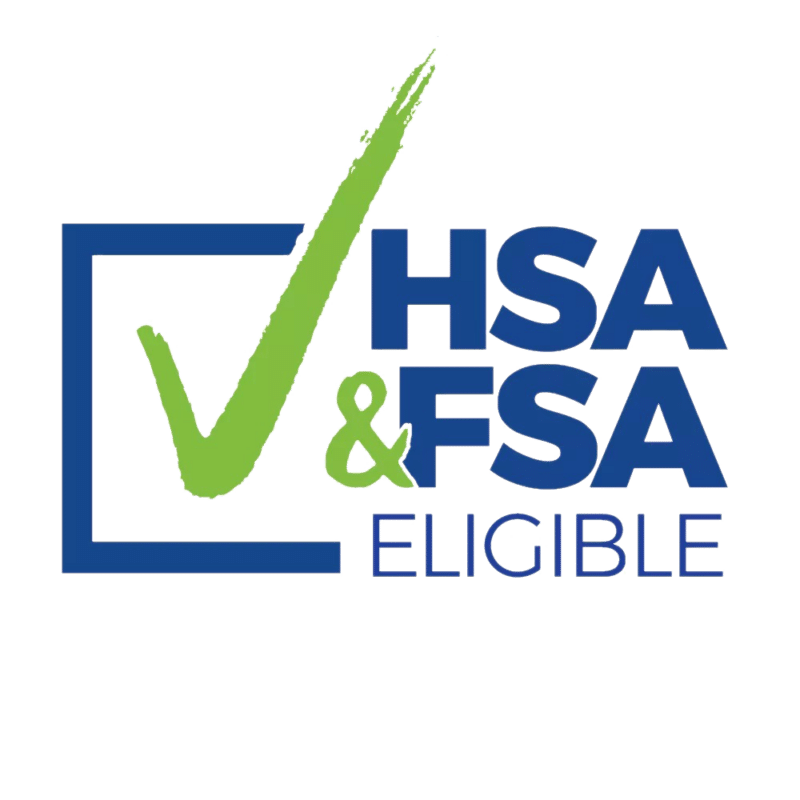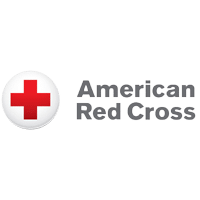No products in the cart.
Uncategorized
How to Prevent Cardiac Arrest
Sudden Cardiac Arrest (SCA) is a major health problem in the United States. It happens when the heart suddenly stops beating or beats irregularly. This is a life-threatening emergency because the heart is unable to pump blood effectively throughout the body.
SCA is usually caused by problems with the heart’s electrical system, which controls the heartbeat. Other conditions like heart disease, enlarged heart, and congenital heart problems can also lead to cardiac arrest.
The Centers for Disease Control (CDC) reports that 6.2 million Americans have heart failure, and coronary heart disease is the leading cause of death, affecting about 1 in 20 adults.
Since many people have serious heart conditions that increase their risk of SCA, it’s important to understand how to prevent it from happening.
The scary truth is that SCA impacts people of all ages, ethnicities, genders, and activity levels, and, as you may have guessed from the name, often happens suddenly. Not only can the onset of cardiac arrest happen with little to no warning, but treating cardiac arrest promptly is crucial due to its life-threatening nature. Immediate intervention with early CPR and quick defibrillation with an Automated External Defibrillator (AED) significantly increases the chances of patient survival. For every minute someone in cardiac arrest does not receive help, their chances of survival decrease by 7-10%.
While SCA is unpredictable, there are a number of very real risk factors you can manage in order to lower your chances of experiencing cardiac arrest. Read on to learn how to prevent cardiac arrest, and how 10 healthy lifestyle choices can help keep your heart safe.
Signs & Symptoms of Sudden Cardiac Arrest
When someone is having a sudden cardiac arrest, it’s crucial to recognize the symptoms right away. This is because acting fast can greatly improve their chances of survival.
Some of the main signs of cardiac arrest are:
- Losing consciousness and becoming unresponsive
- Stopping normal breathing
If you see these symptoms, you need to call for emergency help right away (by dialing 911).
In some cases, the person may suddenly collapse without showing any warning signs first. But research has found that most of the time, around 65% of people do have some symptoms before the cardiac arrest happens. The most common symptoms are:
- Trouble breathing or labored breathing
- Chest pain
- Passing out
- Fast or pounding heartbeat
- Feeling dizzy or lightheaded
So being able to spot these warning signs and getting immediate medical help can make a big difference in whether the person survives. Time is critical when it comes to sudden cardiac arrest.
How to Prevent Cardiac Arrest ?
Preventing sudden cardiac arrest (SCA) requires understanding your risk factors. This can be different for people who are generally healthy versus those who are at higher risk, maybe due to a genetic condition, family history, or having had a cardiac arrest before.
There are some healthy lifestyle choices you can make to lower your risk of cardiac arrest. Let’s go through them:
Manage Stress:
Stress is an important risk factor that is often overlooked when it comes to heart health. Research has shown that high stress levels can increase the risk of heart attacks, which can then lead to cardiac arrest.
The American Heart Association explains that stress can also contribute to unhealthy behaviors like smoking, overeating, lack of exercise, poor diet, and not taking medications as prescribed. All of these things can negatively impact your physical health and raise your chances of having a cardiac arrest.
So learning how to manage and reduce stress is an important step in preventing sudden cardiac arrest. Adopting healthy stress management techniques can go a long way in protecting your heart.

Quit Smoking and Using Tobacco:
Smoking is really bad for your heart health. The chemicals in cigarettes and other tobacco products can damage your blood vessels, increase your blood pressure, reduce the oxygen in your blood, and cause fatty buildup in your arteries. All of these things raise your risk of heart disease and cardiac arrest. Quitting smoking can significantly lower your chances of these problems over time.
Adopt a Healthy Diet:
Eating a nutritious diet is one of the best ways to protect your heart and avoid cardiac arrest. Foods like fruits, vegetables, fish, lean meats, and whole grains are great for your heart. You’ll want to limit foods high in sodium (salt) and saturated fats, like full-fat dairy, fried foods, and high-fat meats. A healthy diet can help prevent other risk factors too, like obesity, diabetes, and high cholesterol.
Limit Alcohol Intake:
Drinking too much alcohol has been linked to increased risk of high blood pressure, heart disease, and other cardiovascular problems that can lead to cardiac arrest. Moderating your alcohol consumption can help lower these risks and avoid other health issues that come with excessive drinking, like obesity and substance abuse.
The key is that making healthy lifestyle choices, like quitting smoking, eating well, and limiting alcohol, can go a long way in preventing sudden cardiac arrest. These are all important steps you can take to protect your heart.
Exercise and Regulate Weight:
Maintaining a healthy weight through a balanced diet and regular exercise is really important for heart health. Being overweight puts extra strain on your heart and increases your risk of heart disease, high blood pressure, and diabetes. By staying at a healthy weight, you can reduce the burden on your heart, improve your cardiovascular fitness, and lower your chances of having a cardiac emergency. It also helps control your cholesterol and blood sugar levels, which further protects your heart.
Screen for Family History of SCA:
If you have a close family member who has experienced sudden cardiac arrest, that increases your own risk. Getting a heart screening to check your genetic predisposition can help you take steps to reduce that risk. Knowing your family’s cardiac history allows you to make informed choices and take precautions to avoid a cardiac arrest yourself.
Regular Medical Checkups for Existing Heart Conditions:
Certain heart conditions, whether you’re born with them or develop them later in life, can raise your risk of cardiac arrest. Things like coronary artery disease, abnormal heart rhythms, and congenital heart defects fall into this category. By getting regular medical check-ups, including heart screenings, your doctor can identify any underlying issues early on. Then you can work together on managing those conditions through medication, lifestyle changes, or medical procedures to prevent cardiac arrest.

Prepare Yourself: Know CPR and How to Use an AED:
Learning CPR and how to use an automated external defibrillator (AED) is crucial, because over 70% of sudden cardiac arrests happen at home. If someone you know goes into cardiac arrest, your quick action using CPR and an AED could be the difference between life and death. Even without any medical training, studies show that people can effectively use an AED to deliver a lifesaving shock. Being prepared with these skills could allow you to save a life.
The key is taking a proactive, multi-faceted approach to protect your heart health. Making healthy lifestyle choices, getting regular check-ups, and learning emergency techniques can all go a long way in preventing sudden cardiac arrest.
High Risk Factors for Sudden Cardiac Arrest
In addition to conditions people are born with, there are other health issues that can also increase the risk of cardiac arrest. Diabetes, high blood pressure, and coronary heart disease are some examples of these risk factors.
Unfortunately, people who have survived a cardiac arrest once are at a higher risk of it happening again. For these patients, doctors may recommend getting an implantable cardioverter defibrillator (ICD) to help prevent sudden cardiac death.
An ICD is a device that gets placed in the chest. It’s battery-powered and designed to detect and correct irregular heartbeats by delivering an electric shock, similar to what an AED would do. This can help stop a life-threatening heart rhythm and prevent another cardiac arrest.
So for people who have already experienced a cardiac emergency, an ICD is a common preventative measure that their doctor may recommend. It’s meant to monitor the heart and intervene if needed to save the person’s life in the event of another sudden cardiac arrest.
The key takeaway is that certain underlying health conditions, as well as a prior history of cardiac arrest, can significantly increase someone’s risk. But devices like ICDs can be an effective way to help protect those patients and reduce their chances of experiencing another sudden cardiac event.
CONCLUSION
Despite the high number of people who die from sudden cardiac arrest in the US each year, it is a medical condition that is often misunderstood and not discussed accurately in the media.
This lack of accurate information contributes to a culture where people feel helpless to protect themselves from cardiac arrest. But the truth is, there are steps we can all take to prevent it.
It starts with being aware of the risk factors and making healthy choices to support our heart health, like through diet and exercise. We can also empower ourselves by learning to recognize the signs of cardiac arrest, and how to perform CPR and use an AED.
Taking these preventative actions and learning response skills are crucial for creating a culture where no one has to experience a cardiac emergency without getting immediate help. We all have the power to make a difference.
The main message is that while sudden cardiac arrest may not get a lot of public attention, there is a lot we can do as individuals to protect our heart health and be prepared to help others. These steps can save lives.
FAQS
What is the average age of cardiac arrest?
Cardiac arrest can happen at any age, but it is more common in older adults, especially those over 65 years old. The average age for someone experiencing a cardiac arrest is around 65.
Can cardiac arrest happen in sleep?
Yes, cardiac arrest can absolutely happen while someone is sleeping. In fact, many cardiac arrests occur during the night or early morning hours, when the person is resting.
What is the survival rate of cardiac arrest?
Sadly, the survival rate for cardiac arrest is quite low, only around 10-12%. This means that for every 100 people who have a cardiac arrest, only 10-12 of them will survive. The key is getting CPR and defibrillation right away, which can greatly improve the chances of survival.
Can cardiac arrest be caused by lack of oxygen?
Yes, lack of oxygen can be a contributing factor to cardiac arrest. Things like choking, drowning, or lung diseases that make it hard to breathe can reduce the oxygen supply to the heart and trigger a cardiac arrest.
What is the most common cause of sudden cardiac death?
The most common cause of sudden cardiac death is an abnormal heart rhythm, called ventricular fibrillation. This is when the heart’s lower chambers start quivering instead of pumping blood effectively.
Where can I learn more about how to prevent cardiac arrest?
There are a few places you can go to learn more about preventing cardiac arrest:
- Talk to your doctor about your personal risk factors and ways to maintain heart health
- Look for CPR and AED training courses in your community
- Visit the American Heart Association website (heart.org) for educational resources
- Contact local hospitals or first aid organizations to see if they offer classes
The key is becoming informed and taking action to protect your heart health and be prepared to help in an emergency. Even small steps can make a big difference.





